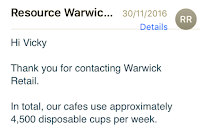“Only when the power
of love overcomes the love of power, the world will know peace”
-
Jimmy
Hendrix
So this is where our
project starts. The quote above encompasses what we aimed to do beautifully. When
we heard of what was being asked from us for this assessment we knew straight
away what we wanted to do. Both Nora and I are extremely moved by this concept
of ‘love’, and the ways in which whilst it is free to give, so few of us choose
to give it or allow ourselves to receive (ß The inspiration for the name of our website).
In the creation of our
project, we collated a list of ideas to describe what we were really wanting to
achieve:
-
Inspire
people to be kind and perform acts of kindness
-
Show that
the only way to fight negativity in the world is through positivity
-
Why do we
hate with conviction but love so so?
-
Could we
show the effect of embracing positivity and honesty?
-
Could we
imagine a world that functioned in this way? How can we get others to imagine
this too?
The most prominent
thing we found when researching this idea of love is that there simply isn’t enough
of it. A quick Google search of ‘hate statistics in Europe’ lead us to this:
Funnily enough, when
we googled ‘love statistics in Europe’, we found nothing.
Nora and I quickly
realised the world was lacking love, and we set ourselves the challenge of
changing this. With social media at the forefront of this generation, we
created a website:
Using several
persuasion techniques including social proof, similarity heuristics,
repetition, availability heuristics and emotional narratives, we wrote a series
of blog posts all of which praised this crazy idea of love. The blog posts share stories from both Nora
and I, along with friends and family who were kind enough to share their
stories with us, and some other narratives we felt the need to expose to our readers.
In order to get our
website ‘out there’ we also created 4 different posters which we distributed
around campus. Our main poster visually presented our website name ‘Love is
Free’, and the other 3 sub posters presented the opening picture from our website
along with some quotes we felt encompassed our website image perfectly:
Sub Poster 2 =
Sub Poster 3 =
These posters were
created in the hope that they would be recognised all over campus, the repetition
and the way in which they all followed the same salient formats would
subsequently lead people to stumble across our website and give it a read.
I suppose the main goal
of our project is presented in our website introduction – to inspire others. By
creating a platform whereby readers could unlock their own potential to spread
kindness throughout the world we aimed to fight hate with love.
Megan Bowers and Nora
Popova.













